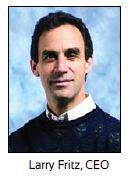Companies To Watch: Auspex Pharmaceuticals
By Wayne Koberstein, Executive Editor, Life Science Leader
Follow Me On Twitter @WayneKoberstein
SNAPSHOT
Auspex Pharmaceuticals is a venture-financed company developing a pipeline of deuterium-based drugs in several rare to large disease areas. As analogs to original compounds, formed by substituting deuterium for hydrogen in discrete locations in the drug molecule, the Auspex compounds are new chemical entities designed to improve safety and efficacy, refine dosing and administration, and boost patient compliance over existing therapies. Deuterium forms a much stronger bond with carbon than hydrogen does, and can attenuate the rate of metabolic breakdown of the drug in the body. The company claims the approach lowers the cost and risk of drug development by exploiting the known pharmacological, toxicological, and regulatory paths of existing therapies. Auspex’s lead compound is a deuterium-substituted analog of tetrabenazine for treating involuntary movements in Huntington’s disease, Tourette’s  syndrome, and tardive dyskinesia. Other pipeline compounds target idiopathic pulmonary fibrosis, inflammatory diseases, and neuropathic pain.
syndrome, and tardive dyskinesia. Other pipeline compounds target idiopathic pulmonary fibrosis, inflammatory diseases, and neuropathic pain.
LATEST UPDATE
• Auspex will use the funds from the Series D Round to advance the development of its portfolio of drug molecules, particularly the Phase 3 development of its lead molecule, SD-809, expected to begin in the first half of 2013.
WHAT’S AT STAKE
Most of the attention given the deuterium approach has so far focused on the supposed race between Auspex and Concert Pharmaceuticals, which is also developing deuterium-based drugs. But neither company has received much attention since 2008, when both achieved major financing, generating a spate of reports that went beyond covering their press releases. Auspex is a small company with novel products in development, years spent mostly in the media shadows, and a recent significant event in its Series D finance round. It has a unique therapeutic focus in the still-tiny deuterium-drug space.
“For decades, scientists had looked at using other atoms in compounds to improve pharmacological performance, and it was recognized that, if you substitute deuterium for hydrogen, you can have very specific effects on a drug’s metabolic profile, but no one had employed the method to improve the metabolic properties of an established drug. That was the company’s founding concept,” says Auspex CEO, Larry Fritz.
The company began in 2006 by doing in-vitro analysis of deuterium analogs looking for a significant “kinetic isotope effect.” As a result, it now has a large “broadly patented” portfolio of deuterium compounds and applications. Fritz says the potential and interest in those applications is much stronger these days because the industry is ready to explore opportunities in “the space between generics and branded medicines” with a low-cost, low-risk approach to NCE (new chemical entity) development.
Some deuterium-based NCEs face a simpler regulatory path and lower development risk. Similar to other XR (extended release) forms, a deuterium compound may in some cases follow the FDA’s 505(B)(2) application procedure that allows its developer to reference various data in the label of the original drug, which can significantly streamline the development work necessary for drug approval. However, deuterium-substituted analogs must still be tested clinically for adequate safety and efficacy.
Auspex is not waiting entirely for patent expirations or taking old off-patent drugs off the shelf for deuterium applications. Most of the compounds in its pipeline are recently approved brandname products. And although it has orphan indications in its pipeline, other indications could open it to large markets.
So here you have it — a non-public company with arguably strong IP and a largely validated, simple platform and, if anything, a competitor that actually complements the company by expanding the space. What’s at stake is many rounds of funding versus potentially large markets for low-risk NCE development. Many good reasons to watch.
